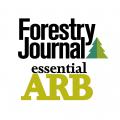
IF I could only find my glasses, dammit, I would be able to see where I put those smart new shoes Ree bought me for the summer. Could they be in the back of the car? No, not in this weather. Let’s go back over the morning and see what we can remember doing which would involve glasses.
Can’t be the telly. I never watch daytime telly, do you? Driving? Could be. We searched both the cars before we went our separate ways this morning. What did I do last evening? Cut the grass! Oh wow, oh whoopee! I took them off when I was trying to fix the exhaust pipe, which for some inexplicable reason had come adrift. My specs are on the shelf in the tractor shed. But why was I looking for my specs? Can’t really remember...
Memory is a bit like that these days. In the kitchen is a small, sturdy oak chair, used as a dining table by one of my dogs. It’s made out of ancient oak salvaged from a very ancient barn in West Wales, transformed into an item of furniture which has withstood the effluxion of time and remains a treasured possession because it was made and given to me by Danny Morgan (head forester Danny) as a leaving present when I was transferred from the Neath District Office to rural Suffolk. This was in the old days, when Forestry Commission head foresters wore, with pride, green tweed jackets with a red collar and brass crowns on either side.
READ MORE: Forester's diary: Blowing in the wind
This only came to an end when the union complained about having to wear uniform, out of step with the egalitarian mood of the 1970s. Danny liked his jacket. It gave him a measure of authority in the at-times difficult community of Cymmer, in the Afan Valley in South Wales. This was an industrial mining community isolated in the ever-increasing forest of Coed Morganwg. Danny was a countryman and a sportsman. Days out with Danny in this fairly wild countryside were sometimes unpredictable. He would cut a whippy little branch of hazel and attach to it a length of fishing line, which he kept wound around his hat, complete with home-tied fly, and proceed to cast over any available stream. He didn’t always catch a little trout, but he looked on fishing as part of the day in the forest with harvesting and marketing or the planting gang.
As the forest developed, it started to support wild fallow deer, refugees from the country park of Margam. As district officer I had to deal with complaints from neighbours as well as protect the new planted areas. We needed to find a way to control the deer. Who could do such a thing? Why, Danny’s your man. We got him a rifle.
This opened up a whole new panorama of sport for head forester Morgan. He’d be out at first light, home for breakfast at 8am, then into the office for the day’s work to begin. I was often invited to join him, and I sometimes did. Deer control sounds pretty routine nowadays, but 50 years ago it was all new and methods of controlled culling were in their infancy, especially in Wales. On one morning now permanently engraved in my memory, we crawled along a forest road looking for deer across the little valley. Danny was driving. He pulled up gently and motioned me to keep still. He then slid out of the driver’s door, keeping out of sight of the fallow buck he had spotted. He took with him his rifle and, leaning against the cab, slid the barrels and their sights across the roof. There followed a thunderous bang and the cab filled with smoke, followed in turn by some fruity Welsh swearing. As he had pushed the gun forward, the soft canvas had rucked up in front of the muzzle, so when the shot went off, the victim was the roof of the Rover. The buck scarpered, unhurt. My ears rang for a week or two.
By some astute manipulation of the stores we managed to get the Land Rover repaired, and through it all we remained friends, even when I went to Woodbridge, so many miles from the Valleys. Danny gave me the chair which he had made himself. I still cherish it, and the memories it stimulates.
Just off to the shed before it gets dark. Who thinks I will find my glasses where I left them? What, none of you? Well, really.
Forestry Journal remains dedicated to bringing you all the latest news and views from across our industry, plus up-to-date information on the impacts of COVID-19.
Please support us by subscribing to our print edition, delivered direct to your door, from as little at £75 for 1 year – or consider a digital subscription from just £1 for 3 months.
To arrange, follow this link: https://www.forestryjournal.co.uk/subscribe/
Thanks – and stay safe.



Comments: Our rules
We want our comments to be a lively and valuable part of our community - a place where readers can debate and engage with the most important local issues. The ability to comment on our stories is a privilege, not a right, however, and that privilege may be withdrawn if it is abused or misused.
Please report any comments that break our rules.
Read the rules here